If you buy using links on this page, we may earn a referral fee.
In today’s data-driven world, the ability to turn raw information into actionable insights is the key to success. But with mountains of data at your fingertips, where do you start? That’s where AI data analysis tools step in. Whether you’re a data scientist, business owner, or someone looking to elevate their analytical game, these 30 cutting-edge AI data analysis tools will transform the way you analyze, visualize, and make sense of your data.
Why AI for Data Analysis?
Artificial intelligence isn’t just a buzzword – it’s the fuel behind today’s smartest businesses. AI data analysis tools go beyond traditional methods by learning patterns, predicting trends, automating tedious tasks, and uncovering hidden insights that are often overlooked by manual processes. Imagine:
- Detecting trends before they happen.
- Automating complex data models with just a few clicks.
- Discovering hidden insights in seconds that would otherwise take days.
The Ultimate AI Toolset for Every Data Need
We’ve curated a list of the 30 most powerful AI data analysis tools that cater to every aspect of data analysis, from simple visualization to advanced predictive analytics. Here’s what makes this list stand out:
- Seamless Integration: Each AI data analysis tool can be easily integrated into your existing workflows, whether you’re working with Python, Excel, or cloud-based platforms.
- Versatile Solutions: From natural language processing and machine learning to real-time data streaming and predictive analytics, these AI data analysis tools cover every need, helping you tackle any data challenge.
- User-Friendly Interfaces: No PhD in AI needed! These AI data analysis tools are designed to simplify complex tasks, allowing even beginners to harness the power of AI with intuitive interfaces and guided workflows.
AI Data Analysis Tools: Vital for Modern Business
AI data analysis tools are vital for modern businesses, enabling them to extract insights and make informed decisions. By leveraging AI data analysis tools, companies can optimize resource allocation, pricing strategies, and understand customer trends. With the surge in data availability, efficient AI data analysis tools are essential for effective data interpretation.
AI data analysis tools help collect, clean, organize, analyze, and interpret large datasets to uncover insights. These tools use techniques like statistical analysis, machine learning, and data visualization to enable users to manipulate data, create predictive models, and present findings through charts and dashboards. AI data analysis tools are crucial in fields like business, finance, healthcare, and research for identifying trends and optimizing processes.
Before choosing AI data analysis tools, understand your data types and integration needs. Select data sources, tables, and columns, and replicate them to a data warehouse for a unified analytics source. Ensure data security and governance, with access controls to protect sensitive information when sharing data across departments.
How to Choose AI Data Analysis Tools
Choosing the right AI data analysis tool is crucial for understanding your data and making informed decisions. To find the best fit for your company, start by assessing your business needs and identifying who will use the tool. Some platforms offer interactive code development, while others focus on point-and-click analysis for non-technical users. Ensure the tool supports relevant visualizations for your enterprise.
Evaluate the tool’s data modeling capabilities. Some AI data analysis tools include a semantic layer or can handle data modeling themselves; otherwise, you’ll need SQL or a tool like dbt for pre-analysis modeling. Lastly, consider the cost. Options range from free to subscription-based. Remember, the most expensive AI data analysis tools aren’t always the best, and many robust free solutions are available.
Who Is This For?
- Business Analysts who want to forecast trends and make data-driven decisions faster.
- Data Scientists looking to optimize workflows and scale projects with AI-driven automation.
- Researchers seeking new ways to explore datasets and uncover hidden patterns.
- Entrepreneurs and Startups who need to make sense of market data to stay competitive.
Ready to Supercharge Your Data Analysis?
Whether you’re a seasoned expert or just starting out, this collection of 30 AI data analysis tools will help you streamline your processes, uncover deeper insights, and gain a competitive edge. Dive in and explore which AI data analysis tools fit your needs. Don’t let your data sit idle — harness the power of AI and take your analysis to the next level.
This approach is dynamic and engaging, highlighting the practical benefits of using AI for data analysis while piquing the reader’s interest with a preview of the tools.
Tableau
A Leading AI Tool for Data Analysis. Tableau is a premier AI-powered analytics platform that transforms raw data into actionable insights through its advanced visualization capabilities. Known for its user-friendly interface and robust integration options, Tableau is widely used by businesses to make data-driven decisions.

Key Features of Tableau:
- Intuitive User Interface: Easy-to-navigate interface that allows users to create interactive dashboards and visualizations without extensive technical knowledge.
- Real-Time Data Exploration: Enables users to explore data in real-time, providing immediate insights.
- Mobile Access: Access and interact with data visualizations on mobile devices.
- Advanced Analytics Integration: Seamlessly integrates with advanced analytics tools and platforms.
- Accelerators: Pre-built dashboards and templates to speed up the analysis process.
Pros
- User-Friendly: The drag-and-drop functionality makes it accessible for users of all skill levels.
- Powerful Visualization: Offers a wide range of visualization options to present data in an engaging and informative manner.
- Scalability: Suitable for both small teams and large enterprises.
- Integration: Easily integrates with various data sources and other business intelligence tools.
Cons
- Costly for Small Businesses: Pricing can be prohibitive for smaller organizations or startups.
- Performance Issues: Can slow down with very large datasets or complex visualizations.
- Steep Learning Curve for Advanced Features: While basic functions are easy to learn, mastering advanced capabilities can take time.
Pricing
Tableau offers several pricing tiers:
Tableau Viewer: $15 per user per month, ideal for users who need to view and interact with dashboards.
Tableau Explorer: $42 per user per month, suitable for users who need self-service analytics.
Tableau Creator: $75 per user per month, includes comprehensive analytics tools.
Tableau stands out as a versatile and powerful tool for data analysis, offering a blend of simplicity and depth. Its intuitive interface and robust visualization capabilities make it a top choice for businesses aiming to leverage data for strategic insights. However, its cost and potential performance issues with large datasets are factors to consider.
Microsoft Power BI
Transforming Data into Actionable Insights. Microsoft Power BI is a leading business intelligence (BI) tool that empowers organizations to visualize and analyze their data with ease. With its robust suite of features, Power BI helps businesses make data-driven decisions and uncover valuable insights.

Key Features of Power BI:
- Real-Time Dashboards: Monitor your business metrics in real-time with interactive and customizable dashboards.
- Data Modeling: Create complex data models to understand relationships and trends within your data.
- Custom Visualizations: Utilize a wide range of built-in and custom visualizations to present your data in the most impactful way.
- Integration with Microsoft Products: Seamlessly integrates with other Microsoft tools like Excel, Azure, and Teams, enhancing productivity and collaboration.
- Mobile Accessibility: Access your reports and dashboards on the go with Power BI’s mobile apps.
Pros
- Integration with Microsoft Products: Works seamlessly with Excel, Azure, and other Microsoft applications, enhancing workflow.
- Affordability: Generally offers lower pricing compared to competitors, making it suitable for various budgets.
- Customizable Dashboards: Users can create tailored dashboards to meet their specific needs.
- AI-Driven Insights: Built-in AI capabilities help discover patterns and trends automatically.
- Mobile Accessibility: Users can access and interact with reports from mobile devices.
Cons
- Complex Licensing Structure: Confusing pricing models may lead to unexpected costs.
- Limited Data Sources: Some users report restrictions on integrating with non-Microsoft data sources.
- Learning Curve for Advanced Features: Users may struggle to utilize its full capabilities without additional training.
Pricing
Microsoft Power BI offers several pricing plans to fit different needs:
Free Version: Available with basic features, ideal for individuals and small teams.
Power BI Pro: Priced at $10 per user per month, includes advanced sharing and collaboration features.
Power BI Premium: Priced at $20 per user per month, offers additional features like larger model sizes and more frequent data refreshes.
Power BI Premium Per Capacity: Starts at $4,995 per capacity per month, designed for large-scale deployments.
Microsoft Power BI is a versatile and powerful BI tool that transforms raw data into actionable insights. Its user-friendly interface, robust integration capabilities, and cost-effective pricing make it a top choice for businesses of all sizes. While it has some limitations in its free version and can be complex for beginners, its frequent updates and extensive features ensure that it remains a valuable asset for any data-driven organization.
DataRobot
Revolutionizing Data Analysis with AI. DataRobot is a cutting-edge AI-driven platform designed to democratize data science and machine learning. By automating the end-to-end process of building, deploying, and managing machine learning models, DataRobot empowers organizations to harness the full potential of their data.
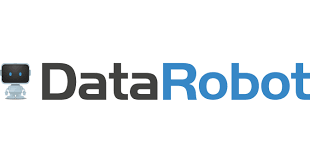
Key Features of DataRobot:
- Automated Machine Learning (AutoML): Streamlines the entire machine learning lifecycle, from data preparation to model deployment, making it accessible to users without extensive coding knowledge.
- Model Interpretability: Provides insights into how models make predictions, ensuring transparency and trust in AI decisions.
- Scalability: Supports large-scale data processing and can run multiple experiments simultaneously, reducing the time to value.
- Integration Capabilities: Easily integrates with various data sources and existing workflows, including Hadoop, SQL databases, and cloud services.
- Collaboration Tools: Facilitates teamwork by allowing users to share models, insights, and reports within the platform.
Pros
- Automated Machine Learning: Streamlines the model-building process, saving time for data scientists.
- User-Friendly Interface: Designed for both technical and non-technical users.
- Wide Range of Algorithms: Offers numerous pre-built algorithms for various types of data analysis.
- Collaboration Features: Facilitates teamwork through project sharing and collaborative dashboards.
- Robust Performance: Known for high accuracy in predictive modeling.
Cons
- Costly for Small Teams: Higher pricing can deter smaller companies or individual users.
- Requires Technical Understanding: While user-friendly, some familiarity with data science concepts is still beneficial.
- Limited Customization: Users may find restrictions in customizing certain aspects of models.
Pricing
DataRobot’s pricing is typically provided upon request and tailored to the specific needs of the organization. It is known to be on the higher end, reflecting its extensive capabilities and enterprise-grade features.
DataRobot is a powerful AI tool that revolutionizes data analysis by automating the machine learning process. Its user-friendly interface, robust integration capabilities, and comprehensive support make it a top choice for organizations looking to leverage AI for data-driven decision-making. While it comes with a higher price tag and a learning curve, its benefits in terms of efficiency and scalability make it a valuable investment for businesses aiming to stay ahead in the AI-driven world.
Sisense
Revolutionizing Data Analysis with AI. Sisense is an innovative AI-powered data analysis tool that empowers businesses to transform complex data into actionable insights. With its robust platform, Sisense makes data management and visualization accessible and efficient, driving smarter decision-making.

Key Features of Sisense:
- AI-Driven Analytics: Leverage AI and machine learning to uncover deep insights and trends.
- Data Integration: Seamlessly integrates data from multiple sources, providing a unified view.
- Interactive Dashboards: Create customizable, interactive dashboards for real-time data visualization.
- Embedded Analytics: Embed analytics into applications for a seamless user experience.
- Natural Language Processing: Use natural language queries to interact with your data effortlessly.
- Alerts and Notifications: Stay informed with real-time alerts on data changes and anomalies.
Pros
- In-Database Analytics: Processes data directly in its storage location, improving performance and speed.
- Customizable Solutions: Highly flexible, allowing for tailored solutions based on business needs.
- AI-Driven Insights: Provides predictive analytics features for informed decision-making.
- Scalability: Easily adapts to growing data needs and user numbers.
- Extensive Data Integration: Connects with numerous data sources and systems.
Cons
- Complex Setup Process: Initial implementation can be time-consuming and challenging.
- Cost Considerations: May be on the higher end of the pricing spectrum for some businesses.
- Steep Learning Curve: Users may face challenges in mastering its extensive features.
Pricing
Sisense offers a subscription-based pricing model with custom pricing options based on the specific needs of the business. They also provide a free trial to explore its features before making a commitment.
Sisense is a powerful AI-driven tool that transforms data analysis with its advanced features and intuitive interface. While it may present a learning curve and some stability issues, its ability to integrate data from multiple sources and provide real-time insights makes it an invaluable asset for any business aiming to leverage data for strategic advantage.
Qlik Sense
Unleashing the Power of Data Analysis with AI. Qlik Sense is a cutting-edge AI-powered data analysis tool designed to transform raw data into actionable insights. Perfect for businesses of all sizes, Qlik Sense offers a robust platform for data discovery and visualization, making it easier than ever to make informed decisions.

Key Features of Qlik Sense:
- Associative Engine: Connects relationships between data points, allowing for intuitive data exploration.
- Interactive Dashboards: Create dynamic, interactive dashboards that provide real-time insights.
- Self-Service Analytics: Empower users to explore data independently without needing extensive technical knowledge.
- Data Integration: Seamlessly integrates data from multiple sources, ensuring comprehensive analysis.
- Advanced Analytics: Utilize AI and machine learning to uncover hidden patterns and trends.
- Collaboration Tools: Share insights and collaborate with team members effortlessly.
Pros
- Associative Data Model: Enables users to explore data relationships easily, enhancing analysis.
- Self-Service Capabilities: Empowers users to create their own dashboards without IT intervention.
- Robust Visualization Options: Offers a wide range of customizable visualizations.
- In-Memory Processing: Delivers fast performance for large datasets.
- Strong Community and Support: An active user community and support resources facilitate learning.
Cons
- Higher Learning Curve: New users may take time to get accustomed to its functionalities.
- Cost for Advanced Features: Higher-tier plans can be expensive for small businesses.
- Complex Licensing Structure: The licensing process can be confusing and may require careful navigation.
Pricing
Qlik Sense offers a flexible pricing model starting at $30 per user per month. They also provide a 30-day free trial, allowing businesses to explore its features before committing.
Qlik Sense is a powerful AI-driven tool that revolutionizes data analysis with its intuitive interface, robust features, and advanced analytics capabilities. While it may come with a higher price tag and some performance limitations, its ability to integrate data from multiple sources and provide real-time insights makes it a valuable asset for any business looking to harness the power of data.
Looker
Redefining Data Analysis with AI. Looker is a powerful AI-driven data analysis platform that transforms how businesses interact with their data. As part of Google Cloud, Looker provides a comprehensive suite of tools to help organizations unlock deeper insights and drive smarter decision-making.

Key Features of Looker:
- Data Exploration: Looker’s intuitive interface allows users to explore data effortlessly, creating custom reports and dashboards.
- LookML: A unique modeling language that simplifies data modeling and ensures consistency across your organization.
- Real-Time Data: Access and analyze real-time data to make timely and informed decisions.
- Embedded Analytics: Integrate Looker’s analytics capabilities into your own applications and workflows.
- Collaboration Tools: Share insights and collaborate with team members directly within the platform.
- Scalability: Designed to scale with your business, handling large datasets with ease.
Pros
- Strong Data Modeling Layer: Allows for advanced data modeling, making it suitable for complex analytics.
- Integration with Google Cloud: Excellent compatibility with other Google services, enhancing functionality.
- Real-Time Analytics: Facilitates immediate insights into data changes.
- Customizable Dashboards: Users can create highly tailored visualizations.
- Collaboration Features: Enhances team collaboration through shared reports and insights.
Cons
- Costly Licensing: Pricing may be a barrier for smaller organizations.
- Requires Technical Expertise: Users may need a background in SQL or data modeling for optimal use.
- Limited Offline Functionality: Primarily cloud-based, restricting offline capabilities.
Pricing
Looker offers a flexible pricing model starting at $5,000 per month. This makes it ideal for larger organizations that need robust and scalable analytics solutions.
Looker is a versatile AI-driven data analysis tool that excels in providing real-time insights and customizable dashboards. Its integration with Google Cloud and user-friendly interface make it a top choice for enterprises looking to enhance their data strategy. However, potential users should consider the cost and the learning curve associated with some advanced features.
Altair
Elevate Your Data Analysis Game. Altair is a powerful AI-driven data analysis tool designed to help businesses and researchers unlock deeper insights from their data. With its advanced analytics capabilities and user-friendly interface, Altair makes data analysis accessible and efficient.

Key Features of Altair:
- Automated Data Preparation: Streamline your data preparation process with automated data cleansing, transformation, and integration.
- Machine Learning Models: Build, train, and deploy machine learning models with ease using a visual drag-and-drop interface.
- Data Visualization: Create interactive and visually appealing dashboards and reports to communicate your findings effectively.
- Multi-Source Integration: Connect to a wide range of data sources, including Excel, SQL databases, cloud services, and more.
- Collaboration Tools: Share your insights and collaborate with team members in real-time within the platform.
Pros
- User-Friendly Visualization Tools: Designed for ease of use, making it accessible to non-technical users.
- Powerful Predictive Analytics: Offers robust capabilities for forecasting and data analysis.
- Integration Options: Connects well with various data sources, enhancing its versatility.
- Strong Focus on Data Storytelling: Allows users to create engaging visual narratives from data.
- Flexible Licensing Options: Various pricing tiers cater to different organizational needs.
Cons
- Performance Issues with Large Datasets: Can experience slow performance with extensive data.
- Learning Curve for Advanced Features: Users may find it challenging to utilize advanced features without training.
- Limited Community Support: A smaller user community may result in fewer available resources.
Pricing
Altair offers several pricing plans to fit different needs:
Free Version: Available with limited features, perfect for small teams or individuals starting out.
Standard Plan: Pricing details are typically provided upon request, tailored to the specific needs of the organization.
Tableau Creator: $75 per user per month, includes comprehensive analytics tools.
Altair is a versatile and user-friendly AI tool that empowers businesses to perform advanced data analysis with ease. Its automated data preparation, machine learning capabilities, and robust visualization tools make it a top choice for those looking to derive actionable insights from their data. While it has some performance and compatibility considerations, its cost-effective pricing and extensive features make it a valuable asset for any data-driven organization.
BigML
Simplifying Machine Learning for Everyone. BigML is a user-friendly, cloud-based machine learning platform designed to make it easy for developers and data scientists to build, deploy, and manage machine learning models. With its intuitive interface and powerful capabilities, BigML enables users to perform complex data analysis and generate real-time predictions without needing extensive programming skills.

Key Features of BigML:
- Wide Range of Algorithms: Supports various machine learning tasks, including classification, regression, clustering, anomaly detection, and time-series forecasting.
- Interactive Visualizations: Provides visual tools to explore data and understand model performance.
- Automated Machine Learning: Simplifies the process of building and tuning models with automated workflows.
- REST API: Allows integration with other applications and services for seamless automation.
- Real-Time Predictions: Capable of generating predictions in real-time, making it suitable for dynamic environments.
- Collaboration Tools: Facilitates teamwork with features for sharing models and datasets.
Pros
- Simple Interface for Machine Learning: Easy for beginners to start with machine learning projects.
- Wide Range of Algorithms: Offers a variety of machine learning algorithms for different needs.
- Real-Time Predictions: Facilitates immediate insights through real-time data processing.
- Collaboration Features: Encourages team collaboration through shared models and projects.
- Strong Documentation: Comprehensive resources for users to learn and troubleshoot.
Cons
- Limited Customization Options: Users may find fewer options for customizing models compared to competitors.
- Pricing for Advanced Features: Higher costs for premium features may deter small users.
- Less Suitable for Large Enterprises: May not fully meet the needs of larger organizations with extensive data requirements.
Pricing
BigML offers several pricing plans to accommodate different needs:
Standard: $30 per month
Boosted: $150 per month
Pro: $300 per month
BigML is a versatile and accessible machine learning platform that empowers organizations to leverage AI for data analysis. Its user-friendly interface and robust feature set make it an excellent choice for businesses looking to integrate machine learning into their operations. However, potential performance issues and a learning curve are considerations to keep in mind.
SAS Viya
A Comprehensive AI Tool for Data Analysis. SAS Viya is a cloud-based, in-memory analytics engine designed to handle large-scale data manipulation, exploration, and advanced analytics. It integrates seamlessly with various programming languages like Python, R, and SAS, making it a versatile tool for data scientists and analysts.

Key Features of SAS Viya:
- High-Powered Analytics: Offers advanced machine learning capabilities and real-time analytics.
- Scalability: Efficiently handles large datasets and complex computations.
- Integration: Supports multiple programming languages and integrates with various business applications.
- User-Friendly Interface: Simplifies the process of data visualization, reporting, and analytics.
- Comprehensive Suite: Provides tools for data preparation, visualization, and deployment.
Pros
- Comprehensive business intelligence: Offers robust BI with advanced analytics for enterprise-level needs.
- Data visualization: Provides powerful tools to create detailed and interactive reports.
- Seamless integration: Integrates well with a wide range of third-party tools and databases.
- Mobile access: Strong mobile analytics capabilities for decision-making on the go.
- Governed self-service: Balances data governance with self-service analytics.
Cons
- Steep learning curve: Requires time and resources to master the platform.
- High cost: Expensive, especially for smaller organizations.
- Complex setup: Initial setup and deployment can be time-consuming.
Pricing
SAS Viya pricing starts at approximately $10,000 annually. The platform also offers a 30-day free trial for new users.
SAS Viya is a robust and versatile AI tool for data analysis, offering powerful analytics capabilities, scalability, and integration with various programming languages. While it comes with a steep learning curve and high cost, its comprehensive features and user-friendly interface make it a valuable asset for businesses looking to leverage data for actionable insights
DataLab
Empowering Data Analysis with AI. DataLab is an innovative AI-powered data analysis tool designed to simplify and enhance the process of deriving insights from data. Developed by DataCamp, DataLab integrates seamlessly with various data sources, making it accessible to both novices and experts in the field.

Key Features of DataLab:
- AI Integration: Leverages AI to assist in writing and running code, ensuring accurate and reliable insights.
- Multi-Source Connectivity: Connects to a variety of data sources including CSV files, Google Sheets, Snowflake, and BigQuery.
- User-Friendly Interface: Intuitive design that mimics popular tools like Jupyter Notebooks, making it easy to navigate.
- Data Visualization: Offers robust visualization tools to help users interpret data effectively.
- Enterprise-Grade Security: Ensures data safety with ISO 27001:2017 certification and encrypted data handling.
- Real-Time Collaboration: Collaborate with team members in real-time to enhance productivity.
Pros
- Powerful cloud-based AI platform: Easily processes large datasets and offers scalable data analysis.
- Customization flexibility: Allows users to build tailored AI models specific to their needs.
- Collaboration features: Multiple team members can work on the same project simultaneously.
- Supports multiple languages: Compatible with Python, R, and other programming languages.
- Automated machine learning: Streamlines the entire machine learning lifecycle.
Cons
- Complex setup: Requires a learning curve for initial deployment.
- Expensive for small users: Pricing can escalate with usage.
- Limited offline capabilities: Needs internet connectivity for full functionality.
Pricing
DataLab offers a flexible pricing model:
Starter Plan: Free, includes up to three workbooks, 20 GPT-4 prompts, and 5GB file storage.
Premium Plan: Approximately $39 per user per month, includes unlimited workbooks, unlimited GPT-4 prompts, and 20GB file storage.
DataLab is a powerful AI-driven tool for data analysis that simplifies the process of data manipulation and visualization. Its user-friendly interface and robust AI integration make it a valuable asset for data scientists, business analysts, and educators. However, potential users should be aware of the learning curve and customization limitations.
Amazon SageMaker
Transforming Data Analysis with AI. Amazon SageMaker is a fully managed service that provides every developer and data scientist with the ability to build, train, and deploy machine learning (ML) models quickly. Hosted on Amazon Web Services (AWS), SageMaker simplifies the ML workflow, making it accessible for various use cases, from business analytics to academic research.
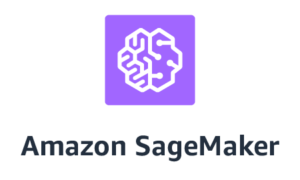
Key Features of Amazon SageMaker:
- Integrated Development Environment: Includes Jupyter notebooks for easy data exploration and model building.
- Automated Model Training: Simplifies the training process with built-in algorithms and automatic model tuning.
- One-Click Deployment: Deploy models to production with a single click, ensuring scalability and reliability.
- Data Labeling: Provides tools for labeling data, which is crucial for supervised learning.
- Model Monitoring: Continuously monitors deployed models to maintain accuracy and performance.
- Support for Multiple Frameworks: Compatible with popular ML frameworks like TensorFlow, PyTorch, and MXNet.
Pros
- End-to-end machine learning platform: From data preparation to deployment, SageMaker covers the entire ML lifecycle.
- Scalability: Easily scales to handle large datasets and complex models.
- Pre-built algorithms: Comes with a variety of built-in algorithms, reducing development time.
- Pay-as-you-go pricing: Cost-effective for users with varied workloads.
- Integration with AWS: Seamlessly integrates with other AWS services for broader capabilities.
Cons
- Steeper learning curve: Can be challenging for users without AWS or ML experience.
- Cost can escalate: Long-term use with heavy datasets may result in high expenses.
- Complex for small tasks: Overkill for simpler machine learning projects.
Pricing
Amazon SageMaker pricing is based on usage, with costs for notebook instances, training, and deployment. The pay-as-you-go model starts at approximately $0.07 per hour for notebook instances. Additional costs apply for data storage and other AWS services used in conjunction with SageMaker.
Amazon SageMaker is a powerful AI tool that streamlines the process of building, training, and deploying machine learning models. Its comprehensive features and seamless integration with AWS services make it a valuable asset for data-driven organizations. However, its cost and complexity may be a consideration for some users.
Informatica
Master Your Data with Intelligent AI. Informatica is a leading AI-driven data management platform that empowers organizations to harness the full potential of their data. With its comprehensive suite of tools, Informatica enables seamless data integration, quality management, and advanced analytics, making it a cornerstone for data-driven decision-making.
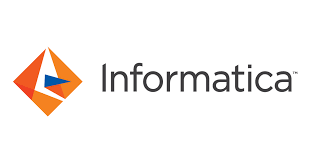
Key Features of Informatica:
- CLAIRE AI Engine: Leverages unified metadata intelligence to automate and scale data management tasks, enhancing productivity and efficiency.
- Data Integration: Seamlessly integrates data from various sources, including cloud, on-premises, and hybrid environments.
- Data Quality Management: Ensures data accuracy, consistency, and reliability through automated data cleansing and validation.
- Data Catalog: Automates data discovery, curation, and lineage, providing a comprehensive view of your data assets.
- Data Governance: Facilitates robust data governance practices to maintain compliance and data integrity.
Pros
- Comprehensive data integration: Streamlines complex data processes across multiple platforms.
- AI-powered data management: Leverages AI to enhance data quality and governance.
- Scalable: Handles everything from small to enterprise-scale data management.
- Cloud-native architecture: Fully optimized for cloud environments, offering flexibility.
- Broad ecosystem support: Integrates well with other major enterprise systems.
Cons
- Steep learning curve: Requires significant training to master.
- High costs: Premium features can be costly for small businesses.
- Complexity for smaller projects: Overkill for simple data integration tasks.
Pricing
Informatica’s pricing is typically provided upon request and tailored to the specific needs of the organization. It offers various pricing models, including Informatica Processing Unit (IPU) pricing and Volume Tier Pricing, to accommodate different usage levels.
Informatica is a powerful AI-driven platform that transforms data management and analysis. Its advanced automation, scalability, and comprehensive features make it an ideal choice for organizations looking to leverage their data for strategic advantage. While it comes with a higher price tag and a learning curve, its benefits in terms of efficiency and data integrity make it a valuable investment for businesses aiming to stay ahead in the data-driven world.
KNIME Analytics Platform
Unlock the Power of Data with AI. KNIME Analytics Platform is a versatile, open-source data analytics tool designed to help you harness the full potential of your data. With its intuitive interface and powerful features, KNIME makes it easy to blend, analyze, and visualize data, enabling you to make data-driven decisions with confidence.
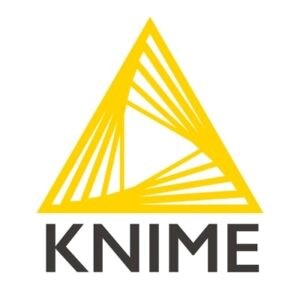
Key Features of KNIME:
- Analytics Platform: Modular Data Pipelining: Create complex data workflows with a simple drag-and-drop interface.
- Extensive Integrations: Connect to a wide range of data sources, including databases, cloud services, and file formats.
- Advanced Analytics: Utilize machine learning, statistical analysis, and predictive modeling to uncover insights.
- Customizable Workflows: Tailor your data workflows with over 2,000 modules and extensions.
- Collaboration Tools: Share workflows and insights with your team for enhanced collaboration.
- Visualization Options: Generate interactive charts, graphs, and dashboards to present your data effectively.
Pros
- Open-source platform: Free to use and highly customizable with a wide range of extensions.
- Visual workflow editor: Intuitive drag-and-drop interface simplifies data processing tasks.
- Community support: Strong community provides frequent updates and help.
- Integration-ready: Works well with many third-party tools, such as Python and R.
- No-code and low-code options: Accessible to users with varying technical expertise.
Cons
- Limited advanced AI features: Less suitable for highly complex AI models compared to competitors.
- Interface can feel cluttered: Visual workflow editor may overwhelm some users with many features.
- Steep learning curve for advanced use: More advanced functions require significant learning.
Pricing
KNIME Analytics Platform is open-source and free to use. For additional features and enterprise support, KNIME offers commercial licenses with custom pricing based on the organization’s needs.
KNIME Analytics Platform is a powerful and flexible data analytics tool that caters to a wide range of users, from data scientists to business analysts. Its open-source nature, combined with extensive features and integrations, makes it an excellent choice for anyone looking to harness the power of their data.
SAP Analytics Cloud
Your AI-Powered Data Analysis Ally. SAP Analytics Cloud (SAC) is a comprehensive AI-driven tool designed to revolutionize data analysis. It seamlessly integrates analytics, planning, and predictive capabilities into a single cloud-based platform, empowering businesses to make data-driven decisions with confidence.
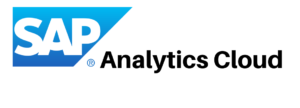
Key Features of SAP Analytics Cloud:
- Predictive Analytics: Leverage machine learning to forecast trends and outcomes.
- Data Visualization: Create compelling visualizations and dashboards for insightful storytelling.
- Real-Time Analytics: Access up-to-the-minute data for timely decision-making.
- Integrated Planning: Combine financial and operational planning in one environment.
- Hybrid Data Access: Connect to both on-premise and cloud data sources, including SAP and non-SAP systems.
- Collaboration Tools: Built-in social features for sharing insights and collaborating in real-time.
Pros
- Integrated solution: Combines BI, planning, and predictive analytics in one platform.
- AI-powered insights: Uses AI to provide data-driven recommendations and predictions.
- Enterprise-friendly: Ideal for large organizations with complex needs.
- Strong data security: Meets rigorous security standards for enterprise use.
- Collaboration features: Built-in tools for team collaboration and decision-making.
Cons
- Expensive for small businesses: Pricing can be prohibitive for smaller companies.
- Steep learning curve: Requires training for full utilization.
- Best suited for SAP users: More beneficial for organizations already using SAP solutions.
Pricing
SAP Analytics Cloud is priced at approximately $396 per user per year, with contract durations ranging from 12 to 60 months. A free trial is also available for those who want to explore its capabilities before committing.
SAP Analytics Cloud is a powerful, AI-driven tool that brings together analytics, planning, and predictive capabilities in a single platform. It’s ideal for medium to large organizations looking to harness the power of data for strategic decision-making. While it comes with a higher price tag and a learning curve, its comprehensive features and seamless integration with SAP systems make it a valuable investment for businesses aiming to stay ahead in the data-driven world.
H2O.ai
Elevate Your Data Analysis with AI. H2O.ai is a cutting-edge machine learning platform designed to empower organizations with advanced AI capabilities. Known for its high performance and scalability, H2O.ai simplifies the process of building, deploying, and managing machine learning models, making it an essential tool for data-driven decision-making.
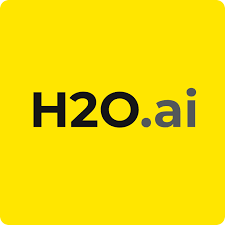
Key Features of SAP Analytics Cloud:
- Automated Machine Learning (AutoML): Streamline the machine learning process with automated feature engineering, model selection, and hyperparameter tuning.
- Open-Source Flexibility: Leverage the power of open-source with a rich library of algorithms and community support.
- Scalability: Handle both small and large datasets efficiently, ensuring optimal performance as data volumes grow.
- Model Interpretability: Gain insights into model predictions with tools for explainability and transparency.
- Integration Capabilities: Seamlessly integrate with popular data science tools like Python, R, and Spark.
- Deployment Options: Deploy models on-premises, in the cloud, or in hybrid environments to suit your infrastructure needs.
Pros
- Automated Machine Learning (AutoML): Simplifies AI model building with automated workflows.
- Open-source with enterprise options: Flexible for both small projects and large businesses.
- Highly scalable: Handles both small and large datasets efficiently.
- Integrates with popular tools: Compatible with Python, R, and Spark, boosting versatility.
- Strong predictive analytics: Known for delivering accurate predictive models.
Cons
- Learning curve for beginners: Advanced features can be challenging to master.
- Limited deep learning support: Not as robust for deep learning tasks.
- Coding skills needed: Full functionality often requires programming expertise.
Pricing
H2O.ai offers flexible pricing options, starting at approximately $6,900 annually. For detailed pricing and custom quotes, it’s best to contact H2O.ai directly.
H2O.ai is a powerful AI platform that enhances data analysis with its advanced machine learning capabilities. Its combination of high performance, scalability, and automated processes makes it an excellent choice for organizations looking to leverage AI for smarter decision-making.
Dataiku
Transform Your Data with Everyday AI. Dataiku is a versatile AI and data science platform designed to empower organizations to build, deploy, and manage data-driven solutions. With its robust features and user-friendly interface, Dataiku enables both data experts and business users to collaborate and harness the power of AI for smarter decision-making.

Key Features of Dataiku:
- End-to-End Platform: Manage the entire data lifecycle from data preparation to model deployment in one integrated environment.
- Collaborative Workspace: Facilitate teamwork with shared projects, version control, and real-time collaboration.
- Visual Workflows: Create complex data workflows with an intuitive drag-and-drop interface, no coding required.
- Advanced Analytics: Utilize machine learning, predictive analytics, and generative AI to uncover insights.
- Extensive Integrations: Connect to a wide range of data sources, including databases, cloud services, and APIs.
- Governance and Security: Ensure data privacy and compliance with robust governance and security features.
Pros
- Collaborative platform: Enables data teams to work together efficiently.
- No-code and code-based options: Flexibility for both beginners and advanced users.
- Automated machine learning: Offers tools for AutoML to streamline workflows.
- Scalable: Suitable for small projects to large enterprise solutions.
- Extensive data preparation tools: Strong focus on data cleansing and transformation.
Cons
- Pricing structure: Costs can add up as your usage grows.
- Steeper learning curve: Non-technical users may struggle initially.
- Limited deep learning capabilities: Not ideal for highly complex AI tasks.
Pricing
Dataiku offers a variety of pricing plans to suit different needs:
Free Edition: Available for up to 3 users with limited features.
Professional Plan: Custom pricing based on specific organizational requirements.
Enterprise Plan: Tailored pricing for large-scale deployments and additional support.
Dataiku is a powerful AI and data science platform that simplifies the process of building and deploying data-driven solutions. With its comprehensive features, collaborative environment, and scalability, Dataiku is an excellent choice for organizations looking to leverage AI for enhanced decision-making and operational efficiency.
Google Cloud AI
Elevating Data Analysis with Intelligence. Google Cloud AI is a suite of machine learning (ML) and artificial intelligence (AI) tools provided by Google Cloud Platform (GCP). It offers pre-trained models and custom model-building capabilities, enabling businesses to leverage AI for data analysis, predictive analytics, and more.
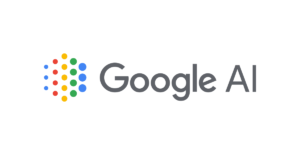
Key Features of SAP Analytics Cloud:
- Pre-Trained Models: Access to a variety of pre-trained models for tasks like image recognition, natural language processing, and translation.
- Custom Model Training: Build and train custom ML models using TensorFlow, PyTorch, and other frameworks.
- AutoML: Simplifies the process of training high-quality custom models with minimal effort.
- Data Labeling: Tools for labeling datasets, essential for supervised learning.
- AI Hub: A collaborative environment for sharing and discovering AI assets.
- Integration: Seamlessly integrates with other Google Cloud services like BigQuery, Cloud Storage, and Kubernetes.
Pros
- Extensive cloud integration: Seamlessly connects with other Google Cloud services for streamlined workflows.
- Customizable AI solutions: Allows users to build bespoke AI models for specific use cases.
- Scalable infrastructure: Handles data processing at any scale, making it ideal for growing businesses.
- Pre-trained models: Offers out-of-the-box AI models for common tasks like image recognition.
- Data security: Google’s strong emphasis on security ensures data protection.
Cons
- Cost for large-scale usage: Expenses can increase significantly with data and computing power.
- Requires technical expertise: Building custom models can be complex for beginners.
- Limited offline capabilities: Cloud-based, meaning full functionality depends on a stable internet connection.
Pricing
Google Cloud AI pricing is based on a pay-as-you-go model, with costs varying depending on the specific services and usage. For example, the cost for AI Platform Training starts at approximately $0.07 per training hour. Additional costs apply for data storage and other integrated services.
Google Cloud AI is a powerful and versatile AI tool that empowers organizations to harness the full potential of their data. Its comprehensive features and seamless integration with other Google Cloud services make it an invaluable asset for data-driven businesses. However, its cost and complexity may be considerations for some users.
Azure Machine Learning
Empower Your Data Analysis with AI. Azure Machine Learning is a comprehensive cloud-based platform designed to streamline the entire machine learning lifecycle. From data preparation to model deployment, Azure Machine Learning provides the tools and infrastructure needed to build, train, and deploy machine learning models at scale.
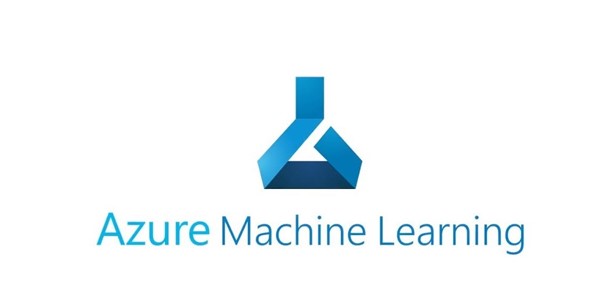
Key Features Azure Machine Learning:
- Automated Machine Learning (AutoML): Simplify the process of building machine learning models with automated feature engineering and model selection.
- Drag-and-Drop Interface: Create and manage machine learning workflows with an intuitive, code-free environment.
- Integrated Notebooks: Leverage Jupyter notebooks for advanced data analysis and model development.
- MLOps: Implement DevOps practices for machine learning with tools for continuous integration and deployment.
- Scalability: Scale your machine learning workloads with powerful cloud-based compute resources.
- Open-Source Support: Utilize popular open-source frameworks like TensorFlow, PyTorch, and scikit-learn.
Pros
- Comprehensive Toolset: Offers end-to-end solutions for the entire machine learning lifecycle.
- Comprehensive Toolset: Offers end-to-end solutions for the entire machine learning lifecycle.
- Scalability: Easily scale resources up or down based on your needs.
- Integration: Seamlessly integrates with other Azure services and third-party tools.
- User-Friendly: Intuitive interface suitable for both beginners and experts.
Cons
- Cost: Can be expensive, especially for large-scale deployments.
- Complexity: Advanced features may require a steep learning curve.
- Resource-Intensive: High computational requirements can lead to increased costs.
Pricing
Azure Machine Learning offers flexible pricing options, including pay-as-you-go and reserved instances. The cost varies based on the compute resources used, with no additional charge for the platform itself. For detailed pricing, it’s best to use the Azure pricing calculator or contact Azure sales for a custom quote.
Azure Machine Learning is a powerful AI tool that empowers businesses to harness the full potential of their data. With its robust features, scalability, and seamless integration, Azure Machine Learning is an excellent choice for organizations looking to implement advanced data analysis and machine learning solutions.
TIBCO Spotfire
Elevating Data Analysis with AI. TIBCO Spotfire is a sophisticated AI-powered data analysis tool designed to help businesses turn complex data into clear, actionable insights. With its advanced analytics capabilities, Spotfire is ideal for organizations looking to leverage data for strategic decision-making.
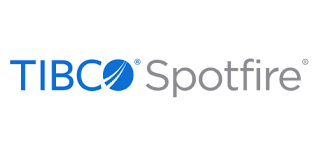
Key Features of TIBCO Spotfire:
- Predictive Analytics: Utilize AI and machine learning to forecast trends and outcomes.
- Data Integration: Seamlessly integrates with various data sources for a comprehensive analysis.
- Interactive Visualizations: Create dynamic, interactive visualizations to explore data in real-time.
- Big Data Analytics: Efficiently process and analyze large datasets.
- Location Analytics: Incorporate geographic data for spatial analysis.
- Collaboration Tools: Share insights and collaborate with team members easily.
- Powerful Data Processing: : Handles large datasets quickly and efficiently.
- Comprehensive Analytics: : Offers a wide range of analytics tools, from predictive to location-based.
- User-Friendly Visualizations: : Intuitive visualization tools that suggest the best ways to display data.
- Scalable: : Suitable for medium to large enterprises.
- Learning Curve: : Requires significant learning for complex analytics.
- Customization Limitations: : Customizing outside of predefined templates can be challenging.
- Cost: : More expensive compared to other data visualization tools.
Pricing
TIBCO Spotfire offers a subscription-based pricing model starting at $1,300 per user per year1. They also provide a 30-day free trial, allowing businesses to explore its features before committing.
TIBCO Spotfire is a robust AI-driven tool that enhances data analysis with its advanced features and intuitive interface. While it may come with a higher price tag and a steep learning curve, its ability to process large datasets and provide comprehensive analytics makes it a valuable asset for any business aiming to leverage data for strategic advantage.
Anaconda
Your Gateway to Advanced Data Analysis. Anaconda is a powerful open-source platform that simplifies the process of data analysis and machine learning. Widely used by data scientists, researchers, and developers, Anaconda provides a comprehensive suite of tools to streamline your data workflows.

Key Features of Anaconda:
- Integrated Development Environment (IDE): Comes with popular IDEs like Jupyter Notebook, Spyder, and RStudio, making it easy to write and execute code.
- Package Management: Manage libraries and dependencies effortlessly with Conda, Anaconda’s package manager.
- Data Visualization: Utilize a variety of visualization tools to create insightful and interactive graphs and charts.
- Machine Learning Libraries: Access a wide range of pre-installed libraries such as TensorFlow, scikit-learn, and PyTorch.
- Cross-Platform Support: Compatible with Windows, macOS, and Linux, ensuring flexibility and ease of use.
Pros
- Comprehensive data science platform: Includes over 1,500 packages for data science and AI.
- Easy package management: Simplifies the installation and management of AI tools.
- Python and R support: Works seamlessly with Python and R for data analysis and machine learning.
- Open-source: Free to use, making it accessible to a wide range of users.
- Community-driven: Large and active community offering support and tutorials.
Cons
- Resource-intensive: Can be demanding on system resources, especially on older machines.
- Complex for beginners: Requires a good understanding of programming to use effectively.
- Limited visualization tools: Visualization options are more basic compared to dedicated tools.
Pricing
Anaconda offers several pricing plans to fit different needs:
Free Version: Available with essential features, perfect for individuals and small teams.
Starter Plan: Priced at $15 per user per month, offering additional features and support.
Business Plan: Priced at $50 per user per month, designed for larger teams with more advanced needs.
Enterprise Plan: Custom pricing tailored to the specific needs of large organizations.
Anaconda is a versatile and powerful platform that empowers data scientists and developers to perform advanced data analysis and machine learning. Its comprehensive toolset, user-friendly interface, and strong community support make it a top choice for anyone looking to dive into data science. While it can be resource-intensive and complex for beginners, its benefits far outweigh the drawbacks, especially given the availability of a free version.
Zoho Analytics
A Versatile AI Tool for Data Analysis. Zoho Analytics is a self-service business intelligence (BI) and analytics platform that empowers users to analyze their business data and create insightful reports and dashboards. It leverages AI and machine learning to simplify data analysis, making it accessible for users with varying levels of expertise.

Key Features of Anaconda:
- Data Integration: Connects seamlessly with various data sources, including databases, cloud storage, and business applications.
- Advanced Visualizations: Offers a wide range of charts, graphs, and customizable reports to visualize data effectively.
- AI-Powered Assistant (Zia): Utilizes AI to provide insights, generate reports, and answer data-related queries.
- Collaboration Tools: Allows users to share reports and dashboards with colleagues and clients, enhancing teamwork.
- Data Preparation: Simplifies data cleaning, transformation, and merging processes.
Pros
- AI-Powered Insights: Leverage Zia’s automated insights and predictions to make data-driven decisions effortlessly.
- All-in-One Analytics: Access powerful data visualization, reporting, and analysis tools in one platform.
- Seamless Integrations: Connect data from multiple sources like cloud services and apps for a unified view.
- Easy Self-Service: Build custom reports and dashboards without needing technical skills.
- Advanced Python & R Support: Run Python and R scripts for deeper analysis and machine learning.
Cons
- Limited Free Features: The free plan has restricted functionality, requiring paid upgrades for advanced tools.
- Learning Curve for Beginners: Some features, like custom scripting, may be challenging for non-technical users.
- Data Source Limitations: Certain integrations and large datasets might require higher-tier plans.
Pricing
Zoho Analytics offers several pricing plans:
Basic Plan: Starts at $22 per user per month.
Standard Plan: $45 per user per month.
Premium Plan: $112 per user per month.
Enterprise Plan: $445 per user per month.
Zoho Analytics is a powerful and versatile AI tool for data analysis, offering a comprehensive suite of features that cater to both beginners and experts. Its user-friendly interface, robust data integration capabilities, and AI-powered assistant make it a valuable asset for businesses looking to leverage data for strategic decision-making. However, potential performance issues with large datasets and a learning curve for advanced features are considerations to keep in mind.
IBM Watson
AI-Powered Data Analysis for the Modern Enterprise. IBM Watson is a premier AI-driven data analysis platform designed to transform how businesses understand and utilize their data. With its advanced machine learning capabilities and natural language processing, IBM Watson helps organizations uncover insights, predict outcomes, and automate complex processes.
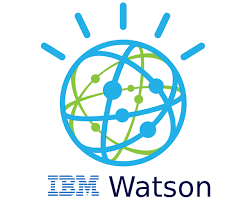
Key Features of IBM Watson:
- Natural Language Processing (NLP): Interact with your data using natural language queries, making data analysis more intuitive.
- Advanced Analytics: Perform deep data analysis with machine learning and predictive modeling.
- Data Integration: Seamlessly connect to various data sources, including structured and unstructured data.
- Automated Insights: Automatically discover patterns and trends in your data.
- Interactive Dashboards: Create visually engaging and interactive dashboards for real-time insights.
- AI-Powered Chatbots: Enhance customer interactions with intelligent chatbots.
- Security and Compliance: Robust security features to protect your data and ensure compliance with industry standards.
Pros
- AI-Powered Insights: Unlock actionable insights with Watson’s advanced machine learning and natural language processing.
- Seamless Integration: Easily connect with popular tools and platforms to streamline your workflow.
- Industry-Specific Solutions: Tailored AI models for healthcare, finance, and other industries, offering specialized support.
- Scalable AI: Watson grows with your business, from startups to enterprise-level, ensuring flexibility at every stage.
- Automation at Its Best: Simplify complex tasks with automated data processing and intelligent recommendations.
Cons
- Premium Pricing: Advanced features and enterprise-level solutions come at a higher cost, making it less accessible for small budgets.
- Customization Challenges: Customizing AI models to specific needs can require significant technical expertise.
- Steep Learning Curve: Some Watson features may be complex for non-technical users, requiring time and training to master.
Pricing
IBM Watson offers a flexible pricing model starting at $30 per user per month. They also provide a free trial to help you get started.
IBM Watson is a powerful AI-driven data analysis tool that excels in providing advanced analytics and intuitive data interaction. Its comprehensive features and robust security make it a top choice for enterprises looking to leverage AI for data-driven decision-making. However, potential users should consider the cost and the learning curve associated with some advanced features.
Julius AI
Your Intelligent Data Analyst. Julius AI is a cutting-edge AI-powered data analysis platform designed to help users analyze and visualize their data effortlessly. With its advanced capabilities, Julius enables users to interact with their data through natural language queries, create custom graphs, and build forecasting models. Whether you’re a data scientist, analyst, or business professional, Julius AI can assist you in gaining valuable insights from your data.

Key Features of Julius AI:
- AI Chat Interface: Allows users to interact with their data using natural language queries, making data exploration intuitive and straightforward.
- Interactive Visualizations: Create and customize graphs and visualizations to present data in meaningful ways.
- Forecasting Models: Leverage advanced algorithms to predict future trends and make informed decisions.
- Machine Learning Algorithms: Ensure accurate and reliable data analysis.
- Data Integration: Seamlessly integrates with various data sources, facilitating easy access and analysis of diverse datasets.
Pros
- Smart Influencer Discovery: Quickly find the right influencers with AI-driven recommendations and detailed audience insights.
- Comprehensive Campaign Management: Easily manage campaigns from start to finish, including tracking, reporting, and collaboration tools.
- In-Depth Analytics: Access performance data and metrics to measure ROI and optimize your influencer strategy.
- Seamless Integrations: Connect with other marketing platforms to streamline your influencer marketing workflow.
- Global Influencer Database: Tap into a vast database of influencers from around the world to find your ideal match.
Cons
- Higher Price Point: May be expensive for small businesses or startups with limited budgets.
- Steeper Learning Curve: Some users might find the platform’s advanced features overwhelming at first.
- Limited Free Trial: Short trial period may not be enough time to explore all features fully before committing.
Pricing
Julius AI offers various pricing plans to accommodate different needs:
Standard: $30 per month
Boosted: $150 per month
Pro: $300 per month3
Julius AI is a versatile and powerful AI tool that simplifies data analysis and visualization. Its user-friendly interface, advanced forecasting capabilities, and robust machine learning algorithms make it an excellent choice for businesses looking to leverage AI for data-driven decision-making. However, potential performance issues and a learning curve are considerations to keep in mind.
Oracle Analytics Cloud
Transform Your Data with AI-Powered Insights. Oracle Analytics Cloud is a comprehensive cloud-based analytics platform designed to empower organizations with advanced AI and machine learning capabilities. By leveraging Oracle’s robust infrastructure, businesses can seamlessly analyze data, uncover insights, and make data-driven decisions with confidence.

Key Features of Oracle Analytics Cloud:
- Embedded Machine Learning: Utilize built-in machine learning algorithms for predictive analytics, classification, and clustering without needing extensive data science expertise.
- Natural Language Processing (NLP): Ask questions in natural language and receive instant visual insights, making data exploration intuitive and accessible.
- Data Integration: Connect to a wide range of data sources, including Oracle Autonomous Database, cloud services, and on-premises databases.
- Interactive Dashboards: Create and share visually appealing dashboards that update in real-time with new data.
- Graph Analytics: Perform advanced geospatial and network analyses with drag-and-drop simplicity.
- Collaboration Tools: Enhance teamwork with shared projects, version control, and real-time collaboration.
Pros
- AI-Powered Insights: Unlock deep insights with Oracle’s AI and machine learning, providing predictive analytics to stay ahead.
- Comprehensive Data Integration: Easily connect to multiple data sources, both on-premises and in the cloud, for a unified analytics experience.
- Scalable for Enterprises: Designed for businesses of all sizes, Oracle Analytics Cloud scales effortlessly to handle massive data volumes.
- Customizable Dashboards: Create fully customizable, interactive dashboards that cater to your specific business needs, with no coding required.
- Advanced Security Features: Benefit from Oracle’s enterprise-grade security to protect sensitive data with encryption and access controls.
Cons
- Complex Setup: Initial setup and configuration can be complex, especially for small businesses without dedicated IT resources.
- High Pricing for Small Businesses: Oracle’s pricing can be steep for smaller companies, especially if advanced features are needed.
- Steeper Learning Curve: The platform’s robust features come with a learning curve, which can be challenging for non-technical users.
Pricing
Oracle Analytics Cloud offers flexible pricing options:
Professional Plan: $16 per user per month or $1.0753 per OCPU hour.
Enterprise Plan: $80 per user per month or $2.1506 per OCPU hour.
Oracle Analytics Cloud is a powerful AI-driven analytics platform that transforms how businesses analyze and act on data. With its advanced features, user-friendly interface, and robust AI capabilities, Oracle Analytics Cloud is an excellent choice for organizations looking to leverage data for strategic decision-making.
Polymer Search
Simplifying Data Analysis with AI. Polymer Search is an innovative AI-powered data analysis tool designed to make data visualization and reporting accessible to everyone. With its intuitive interface and powerful features, Polymer Search helps businesses turn raw data into actionable insights quickly and efficiently.

Key Features of Polymer Search:
- AI-Generated Dashboards: Automatically create beautiful, interactive dashboards that highlight key insights.
- Data Integration: Connect to a variety of data sources, including CSV files, Google Sheets, Shopify, and more.
- Custom Metrics: Define and track custom metrics tailored to your business needs.
- Real-Time Data Syncing: Ensure your data is always up-to-date with automatic syncing.
- PolyAI Chat: Use AI to ask questions and get instant visualizations and insights.
- Custom Branding: Personalize your dashboards and reports with your own branding.
- Collaboration Tools: Share insights and collaborate with team members seamlessly.
Pros
- Intelligent Search Capabilities: Polymer Search AI uses advanced algorithms to deliver highly relevant search results, enhancing user experience and engagement
- Natural Language Processing: It understands and processes user queries in natural language, allowing for more intuitive and conversational search interactions.
- Customizable Interface: Easily tailor the search interface to match your website’s branding and layout, ensuring a seamless user experience.
- Real-Time Analytics: Gain insights into user behavior and search trends with real-time analytics, enabling data-driven decisions to improve content and strategies.
- Scalable Solution: Suitable for businesses of all sizes, Polymer Search AI scales effortlessly as your site traffic and content grow.
Cons
- Cost Considerations: Pricing plans may be steep for smaller businesses or startups, which could be a barrier to entry.
- Setup Complexity: Initial setup and configuration can be intricate, requiring technical knowledge or assistance for optimal performance.
- Dependency on Data Quality: The effectiveness of search results heavily relies on the quality of your site’s data, which may require ongoing maintenance.
Pricing
Polymer Search offers flexible pricing plans:
Starter Plan: $25 per user per month, includes up to three workbooks, 10 PolyAI chat responses, and 5GB file storage.
Pro Plan: $50 per user per month, includes unlimited workbooks, 20 PolyAI chat responses, and 20GB file storage.
Teams Plan: $125 per user per month, includes unlimited workbooks, 30 PolyAI chat responses, and 50GB file storage.
Polymer Search is a powerful AI-driven data analysis tool that simplifies the process of creating interactive dashboards and reports. Its user-friendly interface and affordable pricing make it an excellent choice for businesses looking to enhance their data strategy. However, potential users should consider the customization limitations and the learning curve associated with some AI features.
Alteryx
Revolutionizing Data Analysis with AI. Alteryx is a powerful AI-driven data analysis platform designed to simplify and accelerate the process of transforming raw data into actionable insights. Ideal for data analysts, scientists, and business professionals, Alteryx combines data preparation, blending, and advanced analytics in a user-friendly interface.
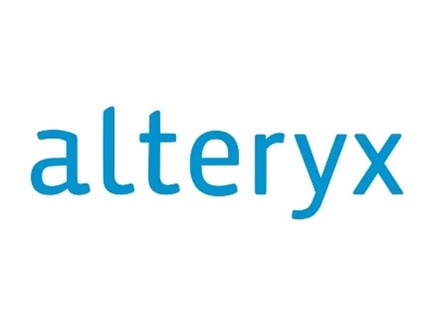
Key Features of Alteryx:
- Analytic Process Automation (APA): Unifies analytics, data science, and business process automation in one platform.
- Drag-and-Drop Interface: Simplifies data preparation and analysis with an intuitive, no-code environment.
- Data Integration: Connects to over 80 data sources, including databases, cloud services, and spreadsheets.
- Machine Learning: Built-in machine learning tools for predictive analytics and data modeling.
- Data Enrichment: Enhances data with demographic, geospatial, and behavioral insights.
- Collaboration Tools: Share workflows and insights across teams for better collaboration.
- Scalability: Suitable for small businesses to large enterprises, with both on-premise and cloud deployment options.
Pros
- End-to-end data analytics: Covers everything from data preparation to advanced analytics.
- User-friendly workflows: Drag-and-drop interface makes complex data processing easier.
- Automated insights: AI-powered automation speeds up data analysis and insights.
- Integration with popular tools: Works well with Excel, Python, R, and more.
- Scalability: Effective for both small projects and large enterprise use.
Cons
- High cost for advanced features: Premium pricing might not suit smaller businesses.
- Complex for beginners: Despite a user-friendly interface, advanced features can be tough to master.
- Requires strong data skills: To leverage full power, users need data science expertise.
Pricing
Alteryx offers a flexible pricing model, typically starting at around $5,195 per user per year for the Designer license. They also provide a free trial to help you get started.
Alteryx is a robust AI-driven data analysis tool that excels in data preparation, blending, and advanced analytics. Its user-friendly interface and comprehensive integration capabilities make it a top choice for businesses looking to streamline their data processes. However, potential users should consider the cost and the learning curve associated with some advanced features.
RapidMiner
A Comprehensive AI Tool for Data Analysis. RapidMiner is a powerful AI-driven data analysis platform designed to simplify complex data science tasks. It offers a seamless experience for both novice and expert users through its intuitive visual workflow designer and robust automation capabilities. Acquired by Altair in late 2022, RapidMiner continues to be a leading choice for businesses and educational institutions alike.
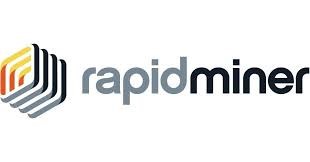
Key Features of RapidMiner:
- Visual Workflow Designer: Create, visualize, and deploy data processes with ease.
- Extensive Algorithm Library: Access a wide range of machine learning algorithms and data preprocessing tools.
- Automation and Process Control: Automate repetitive tasks to save time and reduce errors.
- Data Access and Management: Handle various data types, including text and images, with powerful data integration capabilities.
- Educational Licenses: Free licenses available for educational purposes, making it ideal for teaching and learning
Pros
- Drag-and-Drop Simplicity: No coding needed—easily build complex data models with a visual, drag-and-drop interface.
- End-to-End Platform: Manage everything from data preparation to machine learning and deployment, all in one place.
- Powerful Automation: Automate data workflows and model building, saving time and boosting productivity.
- Pre-Built Templates: Get started fast with pre-designed machine learning templates for common business use cases.
- Scalable for All Teams: Suitable for beginners to experts, making it perfect for teams of any size or skill level.
Cons
- Steeper Learning Curve: While user-friendly, mastering all features may take time, especially for beginners.
- High-Cost Enterprise Plans: Advanced features and scalability come at a premium with enterprise-level pricing.
- Limited Free Version: The free version has limitations on data size and advanced functionalities, requiring an upgrade for full use.
Pricing
RapidMiner’s pricing starts at approximately $2,500 per user per month, with additional costs for enterprise features and support. Educational institutions can benefit from free licenses, making it a cost-effective option for teaching data science.
RapidMiner is a versatile and powerful AI tool for data analysis, offering a comprehensive suite of features that cater to both beginners and experts. Its visual workflow designer, extensive algorithm library, and robust automation capabilities make it a top choice for businesses looking to leverage data for strategic decision-making. However, its cost and resource requirements may be a consideration for smaller organizations.
MicroStrategy
Empowering Data-Driven Decisions. MicroStrategy is a leading business intelligence (BI) and analytics platform designed to help organizations make informed decisions by transforming complex data into actionable insights. It offers a comprehensive suite of tools for data analysis, visualization, and reporting, making it a powerful asset for businesses of all sizes.
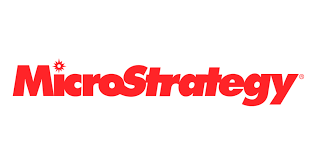
Key Features of MicroStrategy
- Advanced and Predictive Analytics: Utilize sophisticated algorithms to uncover trends and make predictions.
- Self-Service Analytics: Empower users to create their own reports and dashboards without needing extensive technical skills.
- Big Data Solutions: Handle large volumes of data efficiently, integrating with various data sources.
- Real-Time Reporting: Generate real-time reports with a WYSIWYG (What You See Is What You Get) interface.
- Mobile Access: Access analytics on the go with robust mobile capabilities.
- Cloud Deployment: Flexible deployment options, including on-premise, cloud, or hybrid.
Pros
- Powerful AI-Driven Insights: Instantly uncover trends, anomalies, and actionable insights with advanced AI and machine learning features.
- Enterprise-Grade Analytics: Robust platform designed for large-scale organizations, offering scalable analytics for massive data sets.
- Seamless Data Integration: Connect effortlessly to a wide variety of data sources, including big data platforms, cloud services, and enterprise databases.
- Customizable Dashboards: Build interactive, personalized dashboards that cater to specific business needs without needing coding skills.
- Strong Security and Governance: Enterprise-level security features ensure data integrity and compliance, making it ideal for sensitive data environments.
Cons
- High Cost: MicroStrategy’s advanced features come with a premium price tag, making it less accessible for small businesses.
- Steep Learning Curve: The platform’s robust capabilities can be overwhelming for beginners or non-technical users.
- Complex Setup: Initial deployment and configuration may require significant time and technical expertise.
Pricing
MicroStrategy pricing starts at approximately $600 per user per year. The cost can vary based on the specific features and deployment options chosen.
MicroStrategy is a robust and versatile BI tool that empowers organizations to harness the power of their data. Its advanced analytics capabilities, user-friendly interface, and flexible deployment options make it a valuable asset for data-driven decision-making. However, its cost and complexity may be considerations for some users.
Teradata Vantage
Your AI-Powered Data Analysis Partner. Teradata Vantage is a cutting-edge AI-driven analytics platform designed to unify data lakes, data warehouses, and various data sources into a single, cohesive environment. It empowers businesses to harness the full potential of their data, driving smarter, faster, and more informed decision-making.
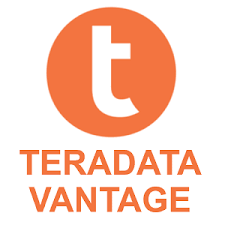
Key Features of Teradata Vantage:
- Advanced Analytics: Utilize AI and machine learning to uncover deep insights.
- Scalability: Efficiently handle massive data volumes with high performance.
- Multi-Cloud Support: Seamlessly integrate with hybrid and multi-cloud environments.
- Data Integration: Consolidate data from diverse sources for comprehensive analysis.
- Real-Time Processing: Access and analyze data in real-time for immediate insights.
- User-Friendly Interface: Intuitive tools for both technical and non-technical users.
Pros
- End-to-end data analytics: Covers everything from data preparation to advanced analytics.
- User-friendly workflows: Drag-and-drop interface makes complex data processing easier.
- Automated insights: AI-powered automation speeds up data analysis and insights.
- Integration with popular tools: Works well with Excel, Python, R, and more.
- Scalability: Effective for both small projects and large enterprise use.
Cons
- High cost for advanced features: Premium pricing might not suit smaller businesses.
- Complex for beginners: Despite a user-friendly interface, advanced features can be tough to master.
- Requires strong data skills: To leverage full power, users need data science expertise.
Pricing
Teradata Vantage offers flexible pricing options, starting from $0 for basic usage, with costs scaling based on data volume and specific features required. This allows businesses to tailor their investment according to their needs and budget.
Teradata Vantage stands out as a robust, AI-powered analytics platform that brings together data from various sources into a unified environment. It’s ideal for organizations looking to leverage advanced analytics and real-time data processing to drive strategic decisions. While it comes with a higher price point and a steeper learning curve, its powerful features and scalability make it a valuable asset for businesses aiming to stay competitive in the data-driven landscape.
ThoughtSpot
Revolutionizing Data Analysis with AI. ThoughtSpot is an AI-powered analytics platform designed to make data analysis accessible to everyone. By leveraging natural language search and advanced AI models, ThoughtSpot allows users to ask complex data questions and receive instant, actionable insights. It’s a game-changer for businesses aiming to democratize data and empower their teams with real-time analytics.

Key Features of ThoughtSpot:
- Natural Language Search: Enables users to query data using simple, conversational language.
- AI-Driven Insights: Automatically generates insights and visualizations powered by AI.
- Live Data Connection: Connects to live data sources for real-time analysis.
- Embedded Analytics: Integrates seamlessly into existing applications with ThoughtSpot Everywhere.
- Scalability: Handles large datasets and complex queries efficiently.
Pros
- Instant Data Insights: Get answers in seconds with AI-powered search, no need for complex queries.
- Voice-Driven Analytics: Use natural language voice search to explore data effortlessly.
- Actionable Dashboards: Build interactive, customizable dashboards that highlight key trends and insights.
- Cloud Flexibility: Seamless integration with cloud data platforms like Snowflake, AWS, and Google BigQuery.
- Scalable for Any Business: Easily handles growing data needs, from startups to enterprises.
Cons
- High Cost for Full Features: Premium features are locked behind higher-tier pricing, limiting access for smaller businesses.
- Steep Learning Curve: Mastering advanced features may require time and technical expertise.
- Limited Offline Support: ThoughtSpot is heavily reliant on cloud connectivity, reducing offline accessibility.
Pricing
ThoughtSpot pricing starts at approximately $95 per month for the Analytics Pro plan. Enterprise plans are available upon request and typically involve annual subscriptions based on the number of users and data volume.
ThoughtSpot is a powerful AI tool for data analysis, offering natural language search, real-time insights, and seamless integration with other applications. While it comes with a higher price tag and some customization limitations, its user-friendly interface and advanced analytics capabilities make it a valuable asset for businesses looking to leverage data for strategic decision-making.


